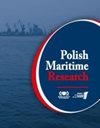利用区块链传输学习技术检测和缓解海运物流中的漏洞
IF 2
3区 工程技术
Q2 ENGINEERING, MARINE
引用次数: 0
摘要
随着对高效海运物流管理的需求日益增长,各行业都在努力开发自动化软件。然而,在配送环境中,从航运路线、天气条件、历史事件和货物规格等不同来源收集数据进行分析已成为一项具有挑战性的任务。这一挑战可能导致产品出现故障,而传统的测试技术又无法实现最佳性能。为解决这一问题,我们提出了一种基于迁移学习和区块链技术的新型去中心化软件系统,命名为 BETL(区块链迁移学习)。我们提出的系统旨在通过利用迁移学习和智能合约驱动的区块链的力量,自动检测和预防海事业务数据中的漏洞。漏洞检测过程是自动化的,不依赖于人工编写的规则。我们引入了非漏洞得分范围图,以便对操作因素进行有效分类。此外,为了确保区块链上的高效存储,我们还集成了一个跨行星文件系统(IPFS)。为了证明迁移学习和区块链集成在安全物流管理中的有效性,我们进行了基于试验平台的实验。结果表明,该方法可实现较高的精确度(98.00%)、检测率(98.98%)、准确度(97.90%)和 F 分数(98.98),这凸显了其在提高海上物流流程安全性和可靠性方面的优势。此外,与标准迁移学习相比,BETL(拟议方法)的计算时间缩短了 18.9%。本文章由计算机程序翻译,如有差异,请以英文原文为准。
Blockchain-Enabled Transfer Learning for Vulnerability Detection and Mitigation in Maritime Logistics
With the increasing demand for efficient maritime logistic management, industries are striving to develop automation software. However, collecting data for analytics from diverse sources like shipping routes, weather conditions, historical incidents, and cargo specifications has become a challenging task in the distribution environment. This challenge gives rise to the possibility of faulty products and traditional testing techniques fall short of achieving optimal performance. To address this issue, we propose a novel decentralised software system based on Transfer Learning and blockchain technology named as BETL (Blockchain -Enabled Transfer Learning). Our proposed system aims to automatically detect and prevent vulnerabilities in maritime operational data by harnessing the power of transfer learning and smart contract-driven blockchain. The vulnerability detection process is automated and does not rely on manually written rules. We introduce a non-vulnerability score range map for the effective classification of operational factors. Additionally, to ensure efficient storage over the blockchain, we integrate an InterPlanetary File System (IPFS). To demonstrate the effectiveness of transfer learning and blockchain integration for secure logistic management, we conduct a testbed-based experiment. The results show that this approach can achieve high precision (98.00%), detection rate (98.98%), accuracy (97.90%), and F-score (98.98), which highlights its benefits in enhancing the safety and reliability of maritime logistics processes. Additionally, the computational time of BETL (the proposed approach) was improved by 18.9% compared to standard transfer learning.
求助全文
通过发布文献求助,成功后即可免费获取论文全文。
去求助
来源期刊

Polish Maritime Research
工程技术-工程:海洋
CiteScore
3.70
自引率
45.00%
发文量
20
审稿时长
>12 weeks
期刊介绍:
The scope of the journal covers selected issues related to all phases of product lifecycle and corresponding technologies for offshore floating and fixed structures and their components.
All researchers are invited to submit their original papers for peer review and publications related to methods of the design; production and manufacturing; maintenance and operational processes of such technical items as:
all types of vessels and their equipment,
fixed and floating offshore units and their components,
autonomous underwater vehicle (AUV) and remotely operated vehicle (ROV).
We welcome submissions from these fields in the following technical topics:
ship hydrodynamics: buoyancy and stability; ship resistance and propulsion, etc.,
structural integrity of ship and offshore unit structures: materials; welding; fatigue and fracture, etc.,
marine equipment: ship and offshore unit power plants: overboarding equipment; etc.
 求助内容:
求助内容: 应助结果提醒方式:
应助结果提醒方式:


